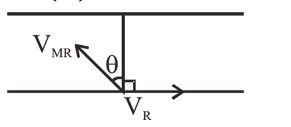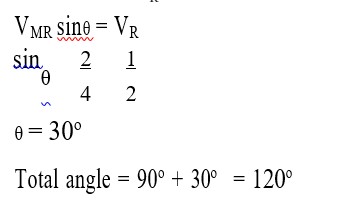11.10 A brass rod of length 50 cm and diameter 3.0 mm is joined to a steel rod of the same length and diameter. What is the change in length of the combined rod at 250 °C, if the original lengths are at 40.0 °C? Is there a 'thermal stress' developed at the junction ? The ends of the rod are free to expand (Co-efficient of linear expansion of brass = 2.0 * 10–5 K–1, steel = 1.2 * 10–5 K–1 ).
11.10 A brass rod of length 50 cm and diameter 3.0 mm is joined to a steel rod of the same length and diameter. What is the change in length of the combined rod at 250 °C, if the original lengths are at 40.0 °C? Is there a 'thermal stress' developed at the junction ? The ends of the rod are free to expand (Co-efficient of linear expansion of brass = 2.0 * 10–5 K–1, steel = 1.2 * 10–5 K–1 ).
11.10 Initial temperature, = 40.0°C, Final temperature, = 250°C, T = - = 210°C
Initial length of the brass rod at , = 50 cm, Initial diameter of the brass rod at , = 3 mm
Length of the steel rod
For the expansion of the brass rod, we have:
= , then = 50 = 0.21 cm
For the expansion of the st
Similar Questions for you
According to question, we can write
Heat Released by block = Heat gain by large Ice block
5 × 0.39 × 500 = mice × 335
= 2.91 kg
Given
6a2 = 24
a2 = 4
a = 2m
This is a multiple choice answer as classified in NCERT Exemplar
(b), (c), (d) When the hot milk in the table is transferred to the surroundings by conduction, convection and radiation.
According to newton's law of cooling temperature of the milk falls of exponentially. Heat also will be transferred
Taking an Exam? Selecting a College?
Get authentic answers from experts, students and alumni that you won't find anywhere else.
On Shiksha, get access to
Learn more about...

physics ncert solutions class 11th 2023
View Exam DetailsMost viewed information
SummaryDidn't find the answer you were looking for?
Search from Shiksha's 1 lakh+ Topics
Ask Current Students, Alumni & our Experts
Have a question related to your career & education?
See what others like you are asking & answering


